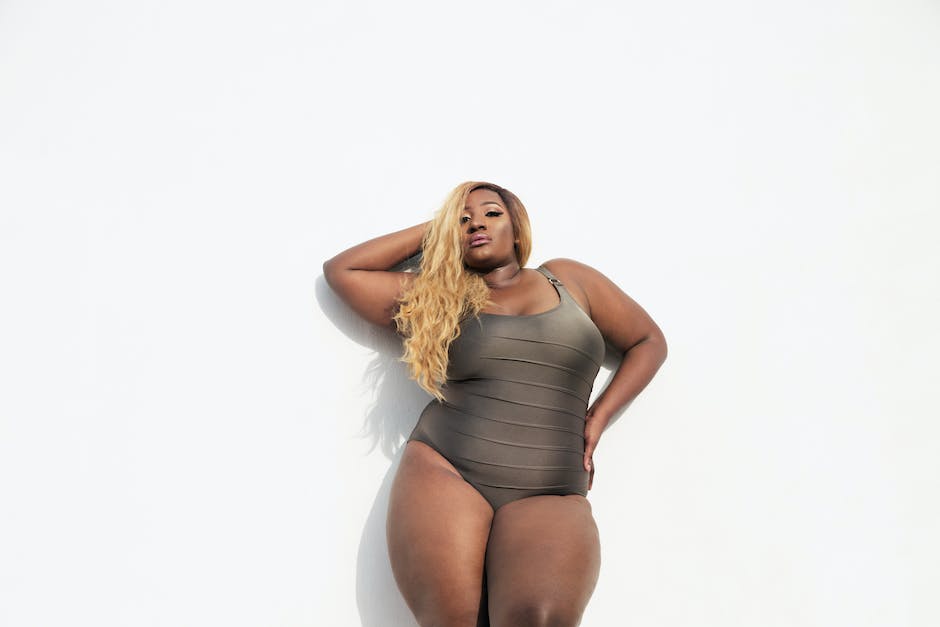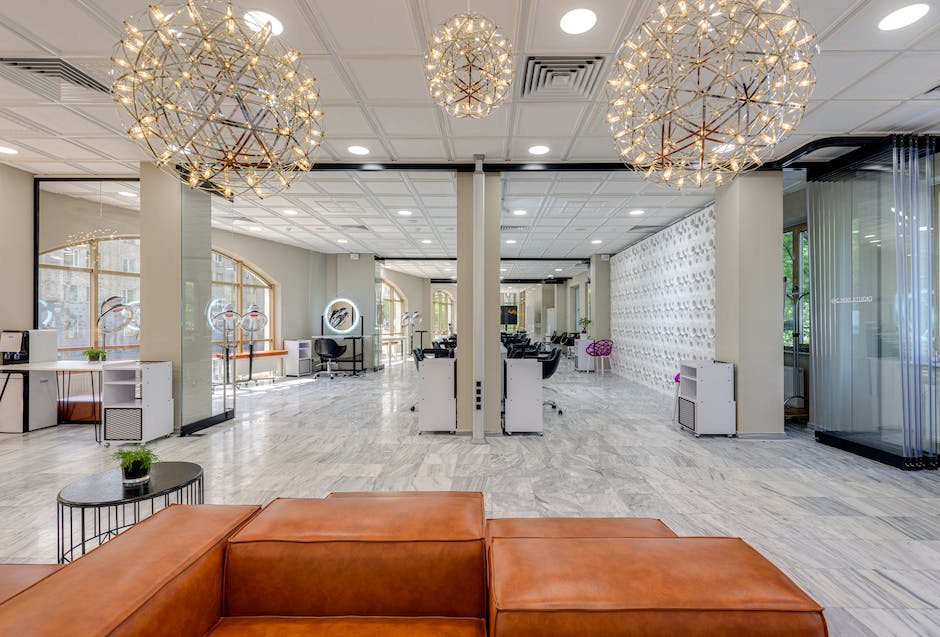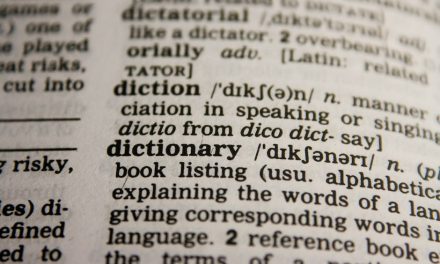Table of Contents
“Empowering beauty, embracing diversity: Arab Leaders revolutionizing self-expression.”
Introduction
The Arab Leaders in the Beauty Industry: Shaping Trends and Self-expression.
The Rise of Arab Leaders in the Beauty Industry

The beauty industry has always been a thriving and ever-evolving sector, with trends and styles constantly changing. In recent years, there has been a noticeable rise in the influence of Arab leaders in the beauty industry, shaping trends and self-expression. These individuals have not only made a significant impact on the industry but have also become role models for aspiring entrepreneurs and beauty enthusiasts around the world.
One of the key factors contributing to the rise of Arab leaders in the beauty industry is the increasing representation of Arab culture in mainstream media. With the growing popularity of social media platforms, Arab influencers and beauty experts have gained a global following, showcasing their unique styles and techniques. This exposure has not only allowed them to build a strong personal brand but has also opened doors for collaborations with major beauty brands.
Arab leaders in the beauty industry have also played a crucial role in challenging traditional beauty standards. In a society where fair skin and European features were often considered the epitome of beauty, these individuals have embraced their Arab heritage and celebrated their unique features. By doing so, they have empowered others to embrace their own cultural identity and redefine beauty standards.
Moreover, Arab leaders in the beauty industry have been instrumental in introducing traditional Arab beauty practices to a wider audience. From ancient skincare rituals to the use of natural ingredients, these individuals have shed light on the rich beauty traditions that have been passed down through generations. This has not only sparked interest in Arab beauty products but has also encouraged a shift towards more natural and sustainable beauty practices.
In addition to their influence on beauty trends, Arab leaders in the industry have also made significant contributions to the business side of the beauty world. Many of these individuals have successfully launched their own beauty brands, catering to the specific needs and preferences of Arab consumers. By doing so, they have not only filled a gap in the market but have also created opportunities for economic growth and job creation within their communities.
Furthermore, Arab leaders in the beauty industry have been at the forefront of promoting inclusivity and diversity. They have actively worked towards breaking down barriers and challenging stereotypes, ensuring that beauty is accessible to people of all backgrounds. This has not only resonated with consumers but has also forced major beauty brands to reevaluate their marketing strategies and product offerings.
In conclusion, the rise of Arab leaders in the beauty industry has been a significant development in recent years. These individuals have not only shaped trends and self-expression but have also challenged traditional beauty standards and introduced Arab beauty practices to a global audience. Their influence extends beyond the industry, inspiring others to embrace their cultural identity and redefine beauty on their own terms. As the beauty industry continues to evolve, it is clear that Arab leaders will play a crucial role in shaping its future.
Influential Arab Beauty Icons: Pioneers and Trendsetters
In the world of beauty and fashion, Arab leaders have played a significant role in shaping trends and self-expression. From pioneering new beauty techniques to setting fashion trends, these influential Arab beauty icons have left an indelible mark on the industry.
One such pioneer is Samer Khouzami, a Lebanese makeup artist known for his transformative techniques. Khouzami’s signature style involves contouring and highlighting to create a flawless complexion. His work has gained international recognition, and he has become a go-to makeup artist for celebrities and models alike. Khouzami’s innovative techniques have revolutionized the way makeup is applied, inspiring countless beauty enthusiasts around the world.
Another influential figure in the Arab beauty industry is Huda Kattan, a Dubai-based makeup artist turned entrepreneur. Kattan’s journey began with a beauty blog, where she shared her makeup tips and tricks. Her honest and relatable approach resonated with audiences, and she quickly gained a loyal following. This led to the launch of her own beauty brand, Huda Beauty, which has become a global sensation. Kattan’s success is a testament to her entrepreneurial spirit and her ability to connect with her audience.
In addition to individual pioneers, Arab beauty icons have also made their mark through fashion and style. One such trendsetter is Sheikha Mozah bint Nasser Al Missned, the former first lady of Qatar. Known for her impeccable style, Sheikha Mozah has become a fashion icon in the Arab world and beyond. Her elegant and sophisticated outfits have inspired many, and she has been featured on numerous best-dressed lists. Sheikha Mozah’s influence extends beyond fashion, as she is also a prominent advocate for education and women’s rights.
The Arab beauty industry has also seen a rise in the popularity of modest fashion, thanks in part to influencers like Dina Torkia. Torkia, a British-Egyptian fashion blogger, has been instrumental in promoting modest fashion and challenging stereotypes. Through her blog and social media platforms, she showcases stylish and modest outfits, proving that fashion and modesty can go hand in hand. Torkia’s influence has helped to redefine beauty standards and empower women to embrace their individuality.
The impact of these influential Arab beauty icons extends beyond the industry itself. Their success and visibility have challenged stereotypes and shattered barriers, paving the way for greater representation and diversity. By embracing their heritage and showcasing their unique perspectives, these pioneers have inspired a new generation of beauty enthusiasts to embrace their own identities and express themselves through beauty and fashion.
In conclusion, Arab leaders in the beauty industry have played a pivotal role in shaping trends and self-expression. Through their innovative techniques, entrepreneurial spirit, and impeccable style, these influential icons have left an indelible mark on the industry. Their success has not only revolutionized the way we approach beauty but has also challenged stereotypes and empowered individuals to embrace their own unique identities. As the industry continues to evolve, it is clear that Arab beauty icons will continue to shape trends and inspire others to express themselves authentically.
Cultural Influence: Arab Beauty Traditions and Modern Trends
Cultural Influence: Arab Beauty Traditions and Modern Trends
The Arab world has a rich and diverse cultural heritage that extends to the realm of beauty and self-expression. Arab beauty traditions have been shaped by centuries of history, religion, and regional influences, resulting in unique and distinctive beauty practices. Today, these traditions continue to influence modern beauty trends, both within the Arab world and beyond.
One of the key aspects of Arab beauty traditions is the emphasis on natural beauty. Arab women have long valued a healthy and radiant complexion, and this is reflected in their skincare routines. Traditional ingredients such as rose water, honey, and olive oil are used to cleanse, moisturize, and nourish the skin. These natural remedies have stood the test of time and are still widely used today.
Another important aspect of Arab beauty traditions is the art of henna. Henna has been used for centuries to adorn the body with intricate and beautiful designs. It is often applied to the hands and feet for special occasions such as weddings and religious festivals. The use of henna is not only a form of self-expression but also a way to celebrate cultural identity and heritage.
In recent years, Arab beauty trends have gained significant popularity worldwide. The rise of social media and the influence of Arab beauty influencers have played a crucial role in spreading these trends. One such trend is the use of kohl, a traditional eye makeup product. Arab women have been using kohl to enhance their eyes for centuries, and now this practice has become a global beauty trend. Kohl is known for its ability to define and accentuate the eyes, giving them a mesmerizing and alluring look.
Another trend that has gained traction is the use of argan oil in hair care. Argan oil, derived from the argan tree native to Morocco, has been used by Arab women for centuries to nourish and strengthen their hair. Its rich and moisturizing properties have made it a sought-after ingredient in hair care products worldwide. The use of argan oil has not only popularized Arab beauty traditions but has also contributed to the economic empowerment of women in the region.
Arab beauty traditions also extend to the realm of fragrance. Perfume holds a special place in Arab culture, with a long history dating back to ancient times. The art of perfumery is highly regarded, and Arab perfumers are known for their expertise in creating unique and captivating scents. Traditional Arabian perfumes, such as oud and musk, continue to be highly sought after for their rich and exotic aromas. These fragrances have become synonymous with luxury and elegance, and their influence can be seen in the global perfume industry.
In conclusion, Arab beauty traditions have a profound cultural influence that continues to shape modern beauty trends. From skincare rituals to the use of natural ingredients, these traditions emphasize the importance of natural beauty and self-care. The rise of social media and the influence of Arab beauty influencers have further popularized these traditions, making them accessible to a global audience. As the beauty industry continues to evolve, it is important to recognize and celebrate the diverse cultural influences that shape our understanding of beauty and self-expression.
Empowering Self-expression: Arab Leaders Redefining Beauty Standards
Arab Leaders in the Beauty Industry: Shaping Trends and Self-expression
The beauty industry has long been dominated by Western standards of beauty, but in recent years, Arab leaders have been making their mark and redefining beauty standards. These leaders are not only shaping trends but also empowering self-expression for individuals across the Arab world.
One of the key ways in which Arab leaders are redefining beauty standards is by embracing and celebrating diversity. In a region known for its rich cultural heritage and diverse population, it is only fitting that beauty standards reflect this diversity. Arab leaders are championing inclusivity by featuring models of different ethnicities, body types, and skin tones in their campaigns and runway shows. By doing so, they are sending a powerful message that beauty comes in all shapes, sizes, and colors.
Moreover, Arab leaders are also challenging traditional gender norms in the beauty industry. Historically, the beauty industry has been heavily focused on women, with men often being overlooked. However, Arab leaders are breaking these barriers by promoting male beauty and grooming products. They are encouraging men to take care of their appearance and embrace their individuality. This shift in focus is not only empowering for men but also helps to break down societal stereotypes and promote gender equality.
In addition to embracing diversity and challenging gender norms, Arab leaders are also using their platforms to promote self-expression. The beauty industry has always been a powerful tool for self-expression, allowing individuals to experiment with different looks and styles. Arab leaders are taking this a step further by encouraging individuals to embrace their cultural heritage and express it through their beauty choices. They are showcasing traditional Arab beauty practices, such as henna art, kohl eyeliner, and intricate hairstyles, and incorporating them into modern beauty trends. This fusion of tradition and modernity allows individuals to celebrate their roots while also expressing their individuality.
Furthermore, Arab leaders are also using their influence to promote social change and empower marginalized communities. They are actively working towards creating a more inclusive and accepting society by supporting initiatives that promote diversity and equality. For example, some Arab leaders have launched campaigns to raise awareness about body positivity and mental health, challenging the unrealistic beauty standards that have plagued the industry for years. By doing so, they are not only shaping trends but also using their platforms to make a positive impact on society.
In conclusion, Arab leaders in the beauty industry are redefining beauty standards and empowering self-expression. Through embracing diversity, challenging gender norms, promoting self-expression, and advocating for social change, they are shaping the industry in a way that is more inclusive and representative of the Arab world. These leaders are not only setting trends but also using their influence to make a positive impact on individuals and society as a whole. As the beauty industry continues to evolve, it is crucial that Arab leaders continue to lead the way in shaping a more diverse, inclusive, and empowering industry.
Q&A
1. Who are some influential Arab leaders in the beauty industry?
Some influential Arab leaders in the beauty industry include Huda Kattan, Joelle Mardinian, and Samer Khouzami.
2. How have Arab leaders shaped beauty trends?
Arab leaders have shaped beauty trends by introducing innovative makeup techniques, promoting natural beauty, and embracing cultural diversity in the industry.
3. What impact have Arab leaders had on self-expression in the beauty industry?
Arab leaders have encouraged self-expression in the beauty industry by promoting individuality, empowering women to embrace their unique features, and challenging traditional beauty standards.
4. What are some notable achievements of Arab leaders in the beauty industry?
Some notable achievements of Arab leaders in the beauty industry include the successful launch of their own beauty brands, collaborations with international beauty companies, and the establishment of beauty academies to train aspiring makeup artists.
Conclusion
In conclusion, Arab leaders in the beauty industry have played a significant role in shaping trends and self-expression. Through their innovative products, techniques, and cultural influences, they have contributed to the global beauty landscape. These leaders have not only empowered individuals to express themselves but have also fostered a sense of pride and identity within the Arab community. Their contributions have made a lasting impact on the industry, promoting diversity and inclusivity in beauty standards.





Recent Comments